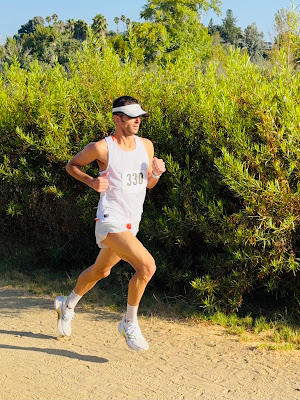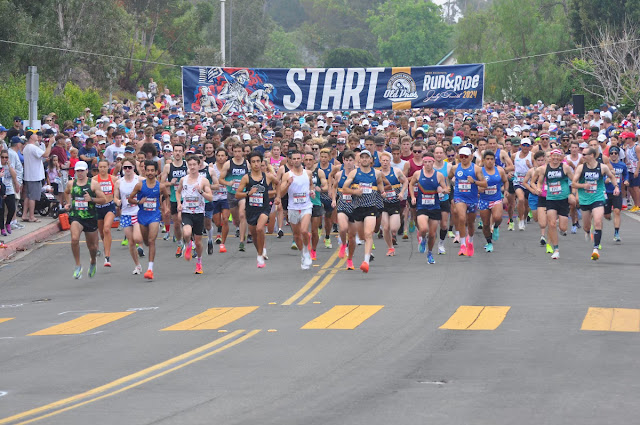I can't remember where I originally heart it, but there is a common adage in flying that came to mind this week: Trust your Instruments. Apparently there is a phenomenon that pilots sometimes experience where their body tells them something that is contrary to the actual physical state in the air. The original story I heard was something like it being common for new pilots to fly into fog and start making minor adjustments here and there then somehow come out to clear sky but they are upside down. There are instruments in planes that will tell you your orientation to the horizon, so this really shouldn't happen. But people get disoriented in the air and if they don't trust what the instruments are telling them, they can get in serious trouble.
The last month has been quite the whirlwind. With travel, us all getting sick, the first week of school, and a slew of other things going on, I have been feeling very off. More than just a normal disruption of routine, this has been feeling like I was dislodged from an old life, like being a bit adrift. It has been very unsettling the past couple of weeks, but I am hoping once the school routine normalizes and this cough is finally gone I will return to my baseline.
The first race of the USATF SD Dirt Dog Series was this weekend. With the fitness I developed through the Road Series, I was hoping to roll right into Dirt Dog and attack some of the local races I have done in the past. However, we brought home a nasty cold from traveling a couple of weeks back and I had been feeling terrible. With everything else piled on, I was not really looking forward to the first race anymore because I knew I would not be firing on all cylinders. But I am glad that I stuck with my normal pre-race routine and trusted the process.
Each day this week I was feeling better, although the congestion and malaise was hanging tough. Nonetheless, I got out and did my race-week rest/stimulation runs. The numbers looked good despite the runs not feeling all that great and I tried to remind myself that you never really feel great when you are resting anyway. By race morning, I felt ok...still a bit groggy and coughing some, but not terrible. So I figured I would give it a go.
I felt lethargic warming up as well, but sometimes that is the case before a race whether you are sick or not. So I did exactly what I usually do and tried to get everything revved up, warm and loose. It was good to see some friends at the start as well and the atmosphere of Dirt Dog is so positive I wasn't really worried about performance. I knew there would not be an PRs or anything so I planned on just staying within myself and seeing how things went.
I went out much more gentle than my usual start and just stuck behind the leading guys to get up to speed. The first mile felt pretty good, with a group of three (Okwaro Raura, Chuck McKeown, and Glen Racz) slowly pulling out a bit of time but not too much. There are some small rolling hills at the Wild Duck CC race and I definitely did not have my usual pop up over those. The leaders would get five seconds or so on each hill, but I was not blowing up which seemed good. Even two miles in I still was within 20 seconds of the lead three, which felt good given I know I can only run with them when I am on a really good day. The third mile I could not hold on to the top end effort and the short hill part way through really slowed me down. But I have a lot of practice monitoring whether I am blowing the limit and I stayed within myself to finish out fairly even on pace.
Given how terrible I was feeling the weeks leading up, I am very happy with the result. I went a bit faster than last year and the numbers all looked good considering. This is all very promising and I feel renewed motivation to dial things in for the series. It is good to have the computer onboard while racing to get immediate feedback on HR zone thresholds and pace, and to get the data after to confirm where things were optimal or could be improved on. And in a lot of races, it is essential for pacing to stay at the exact effort level your blood numbers can tolerate. But both in running and outside it, there are other measures that are critical too.
In running, and other physical activities, perceived effort is sometimes just as important as percentage of numerical maximums or thresholds. Sometimes, perceived effort can tell you important things about other factors effecting performance: exhaustion reservoir, relative nutritional optimization, efficacy of rest benefits, etc. The hard part is that perceived effort can also deceive you. All swimmers know that you can have workouts that feel awful but where you are performing as well if not better than when things seem smooth and easy. It is a cruel trick.
Like flying, those times when performance is equivalent or better but feels awful by comparison, you have to trust your instruments. Because your body is lying to you, you have to trust what the numbers are saying. However, there are things your body does tell you from time to time that you have to listen to, and aren't the product of some disorientation. So, I like the adage Trust your Instruments, outside the flight context, maybe can be stretched a bit.
I certainly have strategies I employ to monitor my baseline in training but also in life, and they are definitely subjective rather than mechanical. I am sure we all do...when things are not right, you just know. There are some obvious indicators, but sometimes things are just off and there is nothing you can identify specifically, but you still know. Other times, lots of things are off and it is hard to tie any specific one to things that are going wrong.
I strive to be as healthy as I can and take care of myself to keep my spirits up. And in the past few years, I think I have found a good baseline. But the last couple of weeks, I have felt dislodged. There is no compass for this kind of thing, but I am hopeful the baseline I set will return things to normal if I stick to the things that have worked. It is hard to be motivated to do the things you need to when the swirl of goings on drag you hard against your anchor rode. Especially when the things that usually work seem to not do the trick. But time with my family fills me back up. And showing up even when things are not optimal to support the goals I set for myself will hopefully continue to flush the engine room.





